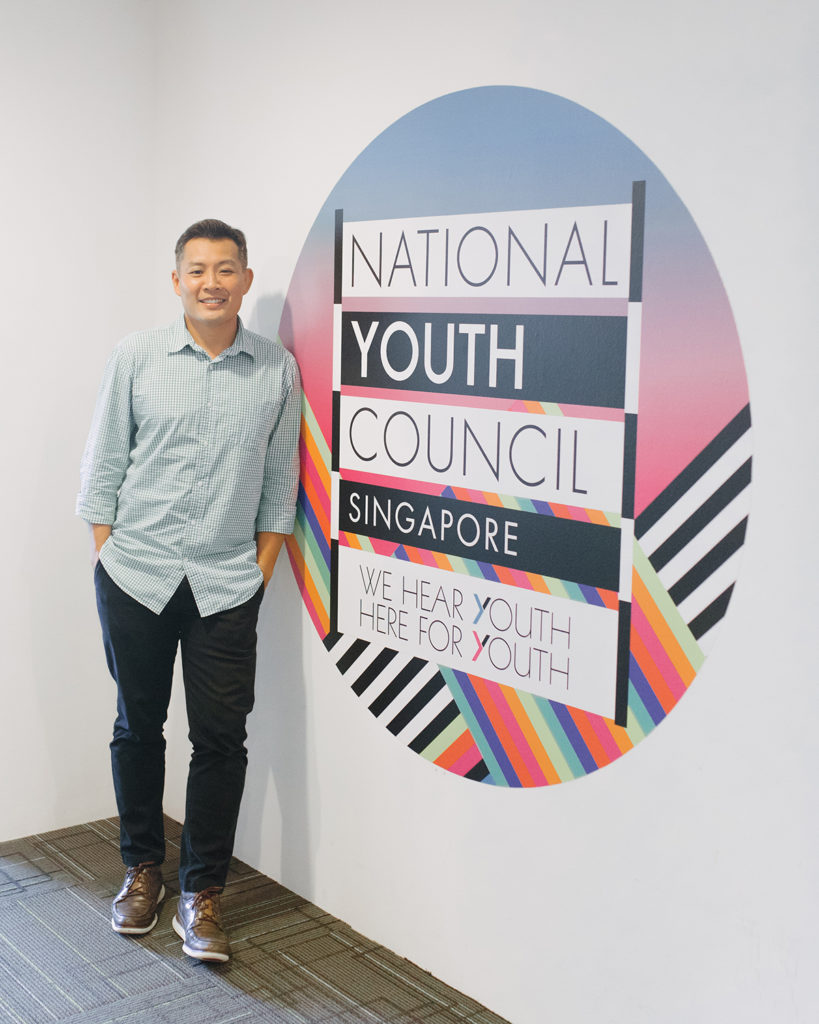
CEO, National Youth Council (NYC)
NYC, Youth Partner since 2016
Having come from a military background where there is a very established rank and file structure, David Chua, CEO of the National Young Council, insists that influence is leadership, and leadership by example. Perhaps it is the unique circumstance of being a conscript defence force that leadership by role modelling is required to inspire courage and commitment in the soldiers he lead.
“Influence does not always require a position of authority.” David asserts that young people can influence through advocacy, connections and lending support, especially in today’s increasingly connected world. Even then, what young people stand for and advocate for will be influenced by the world around them. The availability of alternative news sites, as well as platforms that allow for user generated content, have meant that traditionally authoritarian media sites no longer have a monopoly on opinions. Young people are exposed to a wide range of ideas, and this will have an influence on value sets and perspectives that they have. “Because there are so many views, a young person has to actually think about how they stitch the ongoing narratives of the physical, virtual, and social realms, and make sense of it. And this must come from an anchor set of values – core values you either adopt or form to shape your choices.”
The paradox of the availability of differing views and values however, is that cognitive biases are still strong, resulting in what David terms the ‘Cluster Chamber Effect’. People tend to gravitate towards ideas that resonate with them, and tend to distance themselves from differing viewpoints. The result is that world views become reinforced despite the availability of alternative views. Over time, people become oblivious to other clusters and ecosystems, leading to stratification and lack of inclusivity. It is not in human nature to go against their cognitive biases, so there needs to be an intervention by design or intention to introduce diverse views into our own outlook. Disciplines like reading widely or meeting people from varied backgrounds help us break out of our own shell. Some of these intentionality will need to be modelled by parents and teachers.
Not all of it is doom and gloom though. While external influences are growing, there will always be a premium placed on the opinions of family and close friends. While a young person may subscribe to alternate narratives, they will always take reference from their family and friends’ positions on issues. “While they are exposed to many influences, family and friends have an opportunity to balance the negative narratives or at least provide a more balanced perspective.”
If we can help support young people in establishing anchor values, stitching a narrative and enriching their views, then there is good promise that they will grow up being able to use their influence as advocates, connectors and supporters. That influence will not require positions of authority, but it can begin in their immediate spheres: friends, family, and community.
